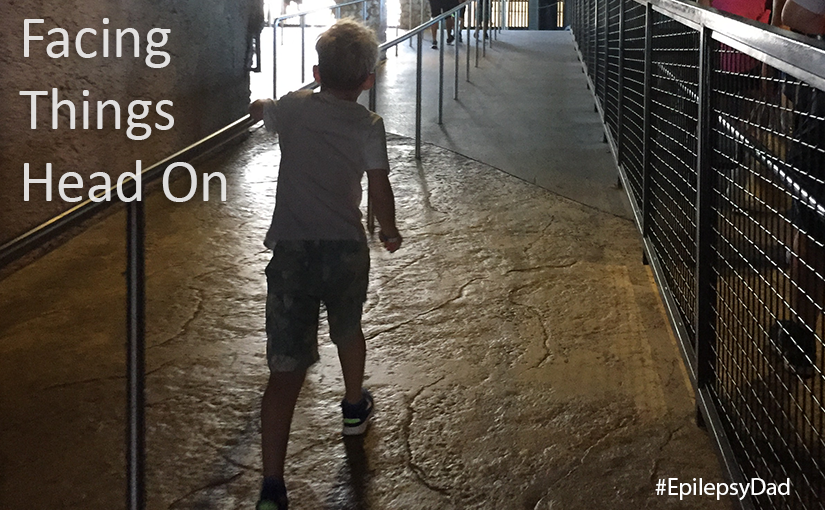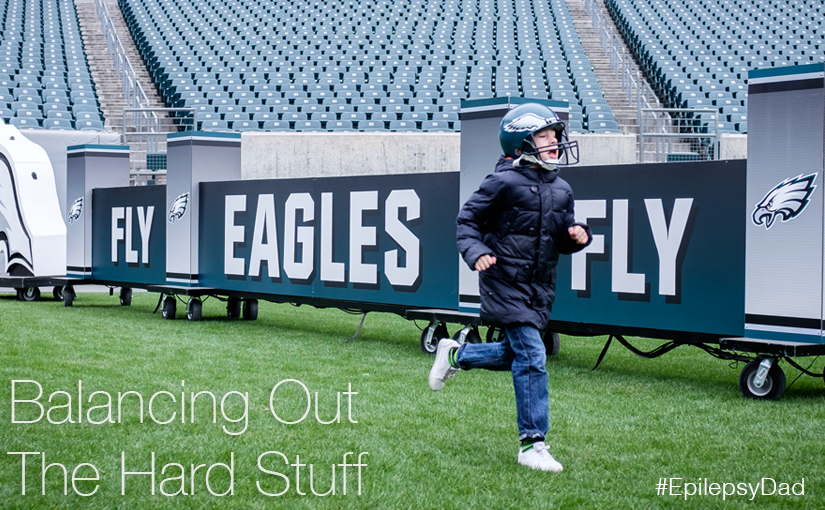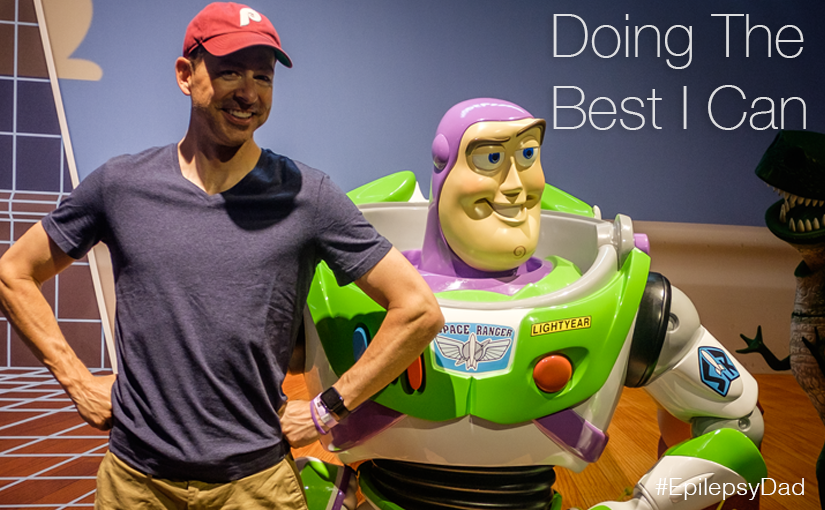My son feels the need…the need for speed. Ever since our last trip to an amusement park (which ended with two missing teeth), he has asked to go back. So, on spring break, we surprised him with a visit to Busch Gardens.
For the hour-long car ride, we kept our destination our secret. But as we pulled near the parking lot, the tell-tale blue track of a roller coaster poked above the trees. His excitement filled the car. As we drove around the parking lot that bordered the park, all he talked about was riding a roller coaster. He wanted to go back on the one that had claimed his two front teeth last time. Calling it out was more because it was one of two “big boy” roller coaster that he was tall enough to ride. But I liked to think he wanted revenge.
Unfortunately for my son, his date with his nemesis would have to wait. Grandma had bought us tickets for a special safari. The disappointment was clearly visible on my son’s face, but we still had a great time. As soon as we waved goodbye to our guide and collected our things, though, he led the way to his date with destiny.
The last time we rode this roller coaster was my son’s first time on a big one. It includes an unexpected acceleration right out of the gate that launches the cars into the sky. My son’s face hit the harness, leaving him bloody and toothless. But otherwise, he seemed to enjoy it and he even rode another roller coaster later in the day.
This time, I expected him to have a much better experience because he was older and a more seasoned rider. That was not to be the case. After the initial speed burst, he was audibly questioning why he made this “bad choice”. I held my hand across his chest as best I could to comfort him (and try to keep his new teeth in place). After another dip and a barrel roll, he said he didn’t feel good. I could see the end of the ride coming up and hoped he could keep his breakfast from coming out. Fortunately, we made it. The ride stopped, the harness lifted, and he carefully climbed out of the car. For the next 30 minutes, he continued to question his life choices. Eventually, he decided that he needed to be “maybe 20” before he tried again.
I felt terrible. Partly because, when we stopped to see our picture from the ride, I laughed. A lot. Also partly because we bought a copy of the picture. And also because I posted it online. And now because I’m including it in this post.

But I also felt bad because my son was genuinely disappointed in himself because he got scared. Not because he has epilepsy, which has often been a source of frustration. Not because of his meds or because of how many seizures he had. But because he was a normal kid that bit off more than he could chew.
Over the past few years, my son’s condition has limited aspects of his life. It’s easier to blame epilepsy when things go wrong. It’s more convenient to have a culprit. But we taught him to listen to his body, to be brave, and that he doesn’t need to do anything that he doesn’t want to. That guidance has served him well, and he’s one of the bravest kids I know. It’s helped during those long hospital stays with relentless testing and needle pricks. It turns out those lessons we taught him are the same he will rely on when things don’t work out.
After a long afternoon playing games and riding the kid’s coaster, my son looked at me with a serious look. He took a deep breath, stood in front of me and told me that he wanted to go back on the big roller coaster.
My first instinct was to protect him. I didn’t want him to have to put on another brave face and will himself through one more thing. He does it at the doctor. He does it when his body is exhausted but he wants to play or feel normal. I told him that he didn’t have to and that we could ride it next time. But he was determined.
We walked back over to the where our day began. Without hesitation, my son walked past the height check and made his way up the tunnel towards the line. He was meeting this challenge the same way he had faced those presented by his epilepsy.
Head on.



